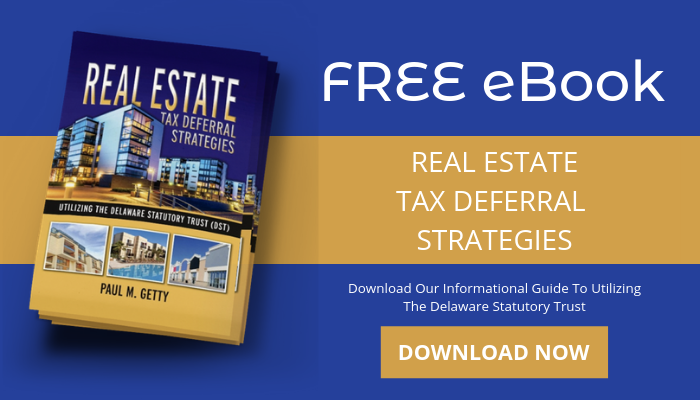Our last post discussed the publicly traded Real Estate Investment Trust (REIT), how it works, and the benefits and risk factors investors should evaluate when considering this type of investment.
As a reminder, a public REIT is a company that generally owns and operates income-producing commercial real estate properties and offers investors the opportunity to own shares in the company.
REITs can allow investors to reduce portfolio volatility while potentially achieving capital appreciation and enjoying an alternative source of income. However, it’s important to recognize that there are different ways to invest in REITs, and there are many different types of REITs. This post discusses the options available to investors.
Property Types
REITs can invest in a variety of different property types. Those include the traditional “big four” most think of as the dominating commercial real estate sectors:
- Multifamily
- Office
- Retail
- Industrial
But there are many other asset types investors might not be aware of, like:
- Healthcare facilities
- Self-storage
- Lodging and resorts
- Manufactured homes
- Data warehouses
- Cell Towers
- Timber
- Billboards
Some REITs are considered ‘diversified’ and own two or more types of commercial real estate. For example, a diversified REIT may own office and industrial properties in its portfolio.
Public or Private
Our first post talked about the simplicity of investing in publicly traded REITs and the liquidity and transparency advantages they offer.
On the other hand, private REITs forgo those benefits in the interest of providing investors with other potential advantages. Private REITs aren’t listed on a major stock exchange and aren’t subject to the same SEC regulations as public REITs.
Since private REITS lack the same reporting requirements as their public counterparts, it is even more important that investors understand these private investments’ potential risks and benefits.
A few significant risks include:
Lack of Liquidity. Since private REIT shares are not publicly traded, investors should understand that REIT managers have no obligation to provide them access to cash, and investments may be locked up for many years.
Lack of Transparency. As mentioned, private REIT managers are not required to follow many SEC reporting requirements, so it can be difficult for investors to know what investment decisions managers make.
Higher Fees. Traditionally, private real estate investments have carried higher fee structures than publicly traded securities. As a result, higher fees on private REITs can be a drag on returns.
Conversely, private REITs can be attractive to investors for a few potential reasons:
Potential for Superior Yields. Private REITs may carry higher leverage than public REITs, which can help boost distributions to investors.
Potential for More Stable Valuations. Since private REITs aren’t required to calculate their share values every day, property valuations may remain more stable while market and economic influences impact public REITs.
Potential to Reduce Volatility. Even though public REITs are considered to have a low correlation to stocks, there are times when they can perform quite similarly. Private REITs are not subject to the same market influences, potentially reducing an investor’s portfolio volatility.
Potential for Upside. Private REITs generally have a lower market value than publicly traded REITs. However, as they acquire additional assets and grow their total income, private REITs may elect to become publicly traded and provide the potential for increased value of their shares as they gain added exposure in public markets. Of course there is no guarantee that REIT shares will increase in value after going public – and share prices might actually go down.
We trust these articles have helped introduce and explain how many investors use REITs to potentially enhance their overall risk-adjusted portfolio returns. As you’ve learned, there are different varieties of REITs to consider.
We encourage you to contact us at (866) 398 1031 if you would like to learn more about how these popular real estate investments might serve a role in your investment portfolio.









Your Comments :